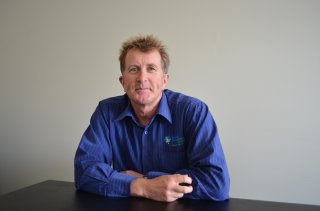-
Featured Items
-
Featured Resources
 Funding & Grants
Don't miss out on funding opportunities. Stay informed with our up to date online listings and email notifications.
Read More
Funding & Grants
Don't miss out on funding opportunities. Stay informed with our up to date online listings and email notifications.
Read More
 Skilled Migration
Our services help both applicants and employers, to learn more, develop plans, submit applications, and settle in.
Read More
Skilled Migration
Our services help both applicants and employers, to learn more, develop plans, submit applications, and settle in.
Read More
 Research and Analysis
Good research and analysis makes the case. How can our resources and services help your project or application?
Read More
Research and Analysis
Good research and analysis makes the case. How can our resources and services help your project or application?
Read More
 Information & Data Resources
With resources like REMPLAN, Regional Knowledge Base, and decades of data, discover how we can help your project.
Read More
Information & Data Resources
With resources like REMPLAN, Regional Knowledge Base, and decades of data, discover how we can help your project.
Read More
-
Stay InformedSubscribe to one or more of our regular email subscriptions, to be kept up to date on news and funding opportunities for the region
-
-
Our Region
- Our Region
- Regional Plan
- Regional Data
- Current Regional Issues
- Population Migration Analysis for 2016-21
- Job Vacancies Continue at All-Time High
- National Debt - What it Means for Our Economy?
- The True Value of Home Solar
- The Economic Impacts of Local Government Amalgamations
- State of the Regions Report 2014-15
- Antifragility - A different take on regional economic development
- Biohubs - Collaborative Waste Management
- Attracting New Residents
- Socio-Economic Impacts of the Murray Darling Basin Plan
- Murray Darling Basin Water Recovery
- Growing Businesses
- The Northern Inland Economy
- Geographical Overview
- Major Industry Sections
- Our Services
- Grants and Funding
-
Skilled Migration
- Skilled Migration
- Skilled Employer Sponsored Regional Visa
- Skilled Work Regional Visa (subclass 491)
- Temporary Seasonal Workers
- Designated Area Migration Agreement (DAMA)
- Helpful Information for Visa Holders
- Information for Employers
- Case Studies
- Payment Details
- Advice & Further Information
- Contact Details
- News & Events
-
Our Projects
- Our Projects
- Current Projects
- Skilled Migration
- Wool Works - Wool Training Schools
- Metal Works - Welding and Fabrication Schools
- Come On Inland
- Stories of Resilience
- Alt Brothers Beekeeping - Glen Innes
- Carelle's Toy Store - Glen Innes
- Greenhill Orchards - Arding
- Gwydir Meats - Warialda
- Kaputar Motors - Narrabri
- Moonbi General Store - Moonbi
- Sandstock - Tingha
- Sherelle Fashions - Tenterfield
- Sleepy Merino - Inverell
- Tenterfield Chamber of Toursim, Industry and Business - Tenterfeild
- The Welders Dog - Armidale
- Walcha Veterinary Supplies - Walcha
- AGCAP - Agribusiness Careers & Professions
- Northern Inland Regional Investment Profile
- Past Projects
- Digital Economy Strategy
- Business Growth Project
- Go Digital
- How to Start an Online Business
- Create Your Website Using Squarespace
- How to Edit Your Squarespace Site - Part 1
- How to Edit Your Squarespace Site Part 2
- Add a Shop to Your Squarespace Site
- Start a Blog and Find out What Customers are Searching
- 14 Tips For a Better Blog Post
- Which Social Media Platforms are Best for Your Business
- How to Use Facebook Effectively For Your Business – Part 1
- How to Use Facebook Effectively For Your Business – Part 2
- Instagram Tips for Business
- Catching Up, More Instagram & Dealing with Haters
- Getting Started with Twitter for Business
- Social Media Scheduling Tools
- How to Start an Etsy Shop – Part 1 – Research
- How to Start an Etsy Shop – Part 2 – Signup
- Online Security for Your Business
- Product Photography and Website Images: Your Guide
- 5 Tips to Improve your Productivity in your Business
- Best Online Business Resources
- How to Improve Your Communication Skills and Win More Clients
- NBN Coordinator
- Putting Power Back in the Regions
- Road Freight Study
- Town Audit Benchmarks
- Food and Wine
- Youth Survey
- Digital TV Switchover Assistance
- Northern Inland Transport Guide
- Live.Train.Work
- Northern Inland Innovation Awards
- Northern Inland Innovation Awards - 2017
- Northern Inland Innovation Awards - 2016
- Northern Inland Innovation Awards - 2015
- Northern Inland Innovation Awards - 2014
- Northern Inland Innovation Awards - 2013
- Northern Inland Innovation Awards - 2012
- Norther Inland Innovation Awards - 2011
- Prime Super Northern Inland Innovation Awards - 2010
- Prime Super Northern Inland Innovation Awards - 2009
- Northern Inland Innovation Awards - 2007
- Northern Lights Project
- NBN Smart Home
- Murray Darling Basin
- Moree Plains Business Workshops
- Namoi Investment Prospectus
- Industrial Land
- Bioenergy and Local Electricity Retailing
- Northern Inland Business Energy Assessment
- Skills for the Future
- Impacts of COVID-19 on Businesses
- Past Projects of NIRDB
- Aboriginal Employment and Enterprise in the Gunnedah Region
- Art as an Industry
- Aviation Survey
- Farm Forestry - Northern Inland Forestry Investment Group
- New England North West Film Strategy
- Northern Inland Excellence in Business Awards
- Food and Wine 2003 - 2008
- Prime Super Northern Inland Innovation Awards 2009
- Regional Business Networking Program
- Regional Leadership Course 2008
- Viticulture Strategy 2002-2003
- About Us
- Contact Us
- Other Resources
- Privacy and Legal
- Search
- News & EventsNews & Events
- NewslettersNewsletters
- Financially parched businesses calling for supportFinancially parched…
Back to Newsletters
Financially parched businesses calling for support
Wednesday 20th of November 2019
As they struggle to cope with the impacts of the worst NSW drought in memory, non-farm businesses are increasingly frustrated with their inability to access the type of government support that farmers can, according to Senior Research Economist David Thompson from Regional Development Australia Northern Inland (RDANI).
A survey of non-farm businesses conducted by RDANI in the Northern Inland region of NSW has revealed significant negative impacts on business turnover and employment levels. Such is the desire of business people to have their voices heard that a total of 432 non-farm businesses have participated to date, with the deadline to do the survey now extended to the end of November. David Thompson has drawn out pertinent figures and conclusions from the results as of Wednesday 20 November 2019. “The survey has shown that 58% of the region’s non-farm businesses are reporting a turnover reduction in the range of 11-50%, and 15% report a reduction of 51-75%,” he said. They are calling for practical support and some great, sometime heart-wrenching insights have come in and should help to educate our political representatives.”
“Sales reductions clearly have a negative impact on business profitability and sustainability,” said Mr. Thompson. “Some businesses are reporting they are having to close their doors or put the business into hibernation in an attempt to minimise their costs as they simply don’t have the cashflow to continue trading and meeting daily operating expenses.”
Businesses were asked what they had been doing to cope with the extended drought. Common strategies included reducing operating costs (75% of businesses), reducing personal expenditure (67%), reducing staff costs (49%) and delaying payments to suppliers (35%). “All of these actions are likely to have negative flow-on effects to other local businesses in the region. Also of concern is that 45% of businesses have taken on additional debt or refinanced existing debt in order to survive,” Mr. Thompson said.
When asked what actions the three tiers of government could take to assist their businesses through the drought, council rate reductions (52% of businesses) and zero interest loans from governments (49%) featured strongly, as did access to the same household payments and other support to which farm businesses are eligible (46%).
Many non-farm businesses commented that their inability to access the type of support which farmers can receive was inequitable, particularly for businesses that relied almost entirely on the farming sector such as machinery suppliers, stock and station agents and rural produce stores.
“An issue to feature strongly is the need for business assistance to retain qualified staff. Several businesses noted that staff who were laid off either went straight onto welfare payments or left the district to look for work. Both these actions only further exacerbated the negative impact of the drought on the local economy,” said Mr. Thompson. “Business owners felt a much better approach than having staff leave and/or go onto unemployment benefits was for governments to pay that (welfare) money to businesses as a wage subsidy so that skilled labour could be retained in the region and in the business.”
“Being able to keep quality staff would also speed business and economic recovery once the drought ends, as business activity could be ramped back up more quickly without the need to recruit and re-train new staff.”
Mr. Thompson explained how the impact of taxation on business cashflow has emerged as also a major hurdle for businesses dealing with the drought. “Making quarterly GST and income tax payments (PAYG) in particular was a problem for many, who suggested these payments should be deferred in severe droughts until conditions and cashflow improve.”
“More general regional income taxation relief was also sought, along the lines of the previous debates on zonal taxation areas, with lower income tax rates for those in drought affected areas. The capacity to tap into superannuation accounts during times of severe drought has been mentioned, as has the provision of vouchers or gift cards to local residents which must be spent within the local area to help support business cash-flow. If Local Councils wish to use drought funding to stimulate their local economy, then our survey can show the Federal Government that this is an option that local businesses support,” Mr. Thompson said.
RDANI Executive Director Nathan Axelsson said the survey will remain open for input until November 30th and can be accessed through RDANI social media or directly, at:
https://www.surveymonkey.com/r/DroughtImpactOnBusinesses “If you're a Non-Farming Business in the region please fill out the survey so that we can gather evidence for a call to action. It'll only take five minutes and can be completely anonymous” he said.
Caption: Senior Research Economist David Thompson from Regional Development Australia Northern Inland (RDANI).
For further information, call RDA Northern Inland Chair, Russell Stewart 0457 922878
Related Pages







 Latest News
Latest News

